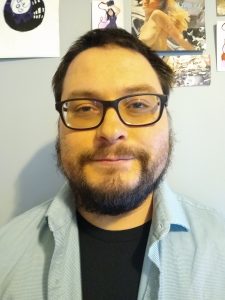For Lewis
For almost two years of my life, I saw Lewis Warsh nearly every day. That sort of proximity makes unpacking and telling specific stories difficult. Events bleed together, and when I think about the time I spent with him I don’t remember particular moments so much as I recall patterns of events.
Lewis bumming cigarettes off of me on the third floor balcony of the English department, or on the sidewalk in front of The Bowery Poetry Club.
The surreality of watching a circle of grad students respond to the question, “tree or shoe?”
Lewis defusing the tension with a simple “Wow” as we sat in his office, reflecting on how a student had just derailed a class discussion with a lengthy anti-Semitic tirade.
The sense that anyone, at any time, could say something profound, so it was important to listen to everyone.
I met Lewis in 2011, when I enrolled in Long Island University’s M.F.A. program, and the most salient lessons I came out of that program with were about building community. That it’s best to look for the good in whatever you can, whether it’s a piece of writing or an event you’d rather not attend. It often felt like Lewis looked at life as a kind of ongoing dinner party, one that was better if you filled it with interesting people and didn’t take yourself too seriously.
Many of my closest friends are people I first met in Lewis’ classes—in fact, two of my “quarantine buddies” came from the class where the “tree or shoe” discussion took place. I’m still in touch with many of my old classmates, and even those that I’m not in regular contact with usually come to mind at least twice a week. “Lewis-isms” still come up at parties, or in passing during conversation: a shorthand for philosophical quandaries that often begin with “can one…” or that force us to consider abstract concepts in concrete terms. I’m still planning to drive to Rockaway Beach at some point soon, to move a bucket of sand from one part to another, an exercise that now feels urgent, even with the state of the world being what it is.
Lewis introduced me to so many wonderful and strange people, and helped me learn from them. He taught me to consider what was said, rather than who said it. I miss you, Lewis.
 MICHAEL GROVE is an author and a teacher living in Brooklyn. His work has appeared in Brooklyn Paramount and Downtown Brooklyn.
MICHAEL GROVE is an author and a teacher living in Brooklyn. His work has appeared in Brooklyn Paramount and Downtown Brooklyn.

